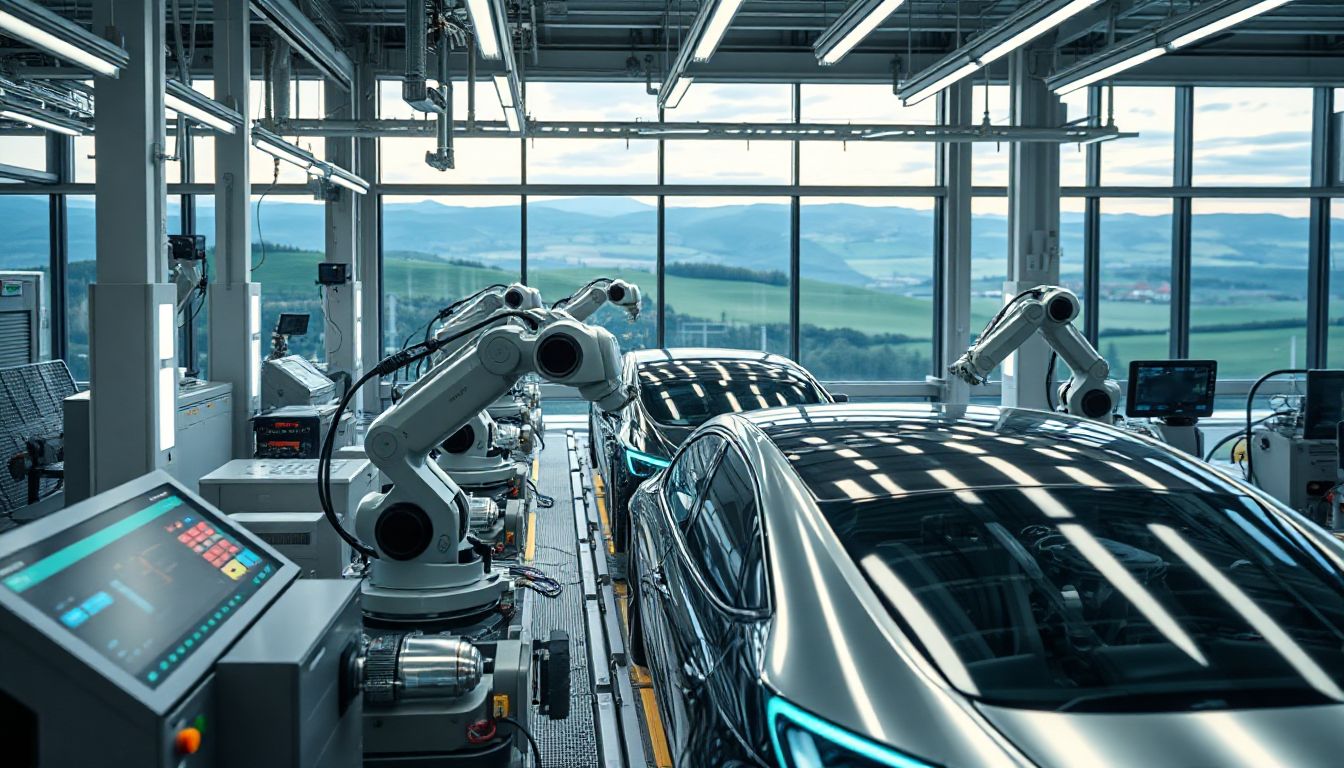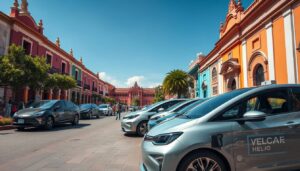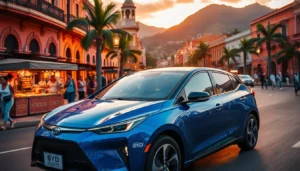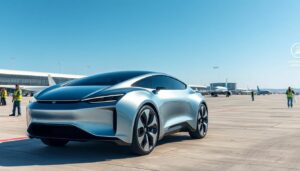Introduction
Germany has long been known as the heart of the automotive world. From luxury sedans to rugged SUVs, its brands dominate roads worldwide. Now, the country is shifting gears toward electric vehicles (EVs). With supportive government policies and advances in technology, Germany is racing ahead in EV innovation. More drivers want eco-friendly cars—cheaper to run, better for the planet, and packed with new tech. This article dives into Germany’s top EV manufacturers, their latest breakthroughs, and what’s next for electric mobility.
Overview of Germany’s Electric Vehicle Industry
The Evolution of EVs in Germany
Germany’s car industry has a rich legacy rooted in traditional auto manufacturing. But as the world pushes for cleaner energy, German automakers pivoted to electric cars. The shift started in earnest in the last decade. Major players introduced their first electric models, pushing the industry toward sustainability goals. Policies supporting green energy helped accelerate this change. Now, EVs are no longer just a niche—they’re becoming the norm.
Market Size and Growth Trends
Germany’s EV market is booming. Last year, electric vehicle sales soared by more than 40%. Industry reports suggest that by 2030, EVs could make up over 50% of new car sales in Germany. As charging infrastructure expands and costs drop, more people see EVs as practical choices. Experts forecast continued rapid growth, driven by consumer demand and stricter emissions rules across Europe.
Government Policies and Incentives
Germany’s government is pushing for a “green mobility” future. They offer subsidies of up to 9,000 euros for new EV buyers. Tax breaks and reduced registration fees make switching to electric more attractive. Regulations also demand automakers reduce emissions significantly by 2030. These policies help manufacturers stay competitive and encourage consumers to go electric. The German Climate Action Plan aims for carbon neutrality by 2045, making EVs a core part of their plan.
Major Electric Vehicle Manufacturers in Germany
Volkswagen Group
Volkswagen, often called VW, is the biggest name in German EVs. Their ID series is a hit worldwide. The ID.3, launched in 2020, established VW as a serious EV maker. They invested heavily in the MEB platform, a flexible electric car chassis. It allows VW to produce different models more efficiently, from compact cars to SUVs. VW now claims to sell over half a million EVs annually. Their focus on affordable, practical EVs keeps them ahead.
BMW Group
BMW’s takes a more premium approach. Their BMW i series includes popular models like the i3 and i8. Recently, BMW launched the i4 and iX, combining luxury with cutting-edge tech. They also invest in better batteries and autonomous driving features. BMW’s collaborations with tech firms boost their innovation power. Their goal? Make EV driving exciting and accessible for everyone, to stay competitive in this fast-moving market.
Mercedes-Benz
Mercedes-Benz marks its entry into electric with the EQ brand. Their focus is on luxury, safety, and top-tier tech. The Mercedes EQC and upcoming EQS are prime examples of high-end electric vehicles. These models feature advanced comfort options, safety tech, and long ranges. Mercedes aims to lead the luxury EV market, blending performance with elegance. They plan to expand their EV lineup over the coming years to compete with Tesla and others.
Other Prominent Manufacturers
Audi’s e-tron models showcase their tech prowess. The e-tron SUV and sportback serve as strong competitors against similar luxury EVs. Opel, with its smaller, more affordable EVs, targets niche markets. New startups like Sono Motors and Next.e.GO aim to disrupt the mainstream with innovative designs and lower costs. These companies are eager to shake up the traditional auto industry with fresh ideas.
Technological Innovations in German EV Manufacturing
Battery Technologies and Energy Efficiency
Battery performance remains key for EV success. German automakers make big strides here. They’re developing lithium-ion packs that last longer and cost less. Some are even experimenting with solid-state batteries, promising faster charging and better safety. R&D labs across Germany work tirelessly to extend the driving range, making EVs more practical for daily use.
Electric Drivetrain and Powertrain Technologies
Efficient motors and smart powertrain designs help Germans stay ahead. Innovations include lightweight motors that boost acceleration and reduce energy use. Regenerative braking captures energy when drivers slow down, increasing overall efficiency. These improvements ensure EVs get more miles per charge while being enjoyable to drive.
Autonomous and Connected Vehicle Features
German EVs are packed with smart features. Many models offer semi-autonomous driving assistance, making long trips more relaxing. Connectivity via IoT, AI, and 5G allows features like real-time traffic updates, remote diagnostics, and seamless charging. These advancements create safer, smarter, and more user-friendly cars.
Sustainable Manufacturing Processes
Germany’s automakers are conscious of their environmental impact. They use eco-friendly materials and renewable energy at production plants. Circular economy projects—recycling batteries and vehicle parts—help reduce waste. This focus on sustainability aligns with Germany’s long-term climate goals.
Challenges Faced by German EV Manufacturers
Supply Chain Disruptions
Global chip shortages have hit automakers hard. Raw materials like lithium and cobalt are also in limited supply, pushing costs up. Manufacturers face delays in producing new EV models, slowing growth. Overcoming these hurdles requires diversifying supply sources and boosting local battery production.
Competition and Market Saturation
Asian companies like Tesla and Hyundai now challenge German dominance. Their lower prices and fast innovation put pressure on traditional brands. To stay competitive, German automakers invest heavily in tech, branding, and expanding their models.
Regulatory and Infrastructure Barriers
Building enough fast chargers remains a challenge. Standardizing charging systems across Europe helps, but some issues linger. Regulatory hurdles also include navigating different rules across countries. Improving infrastructure and streamlining regulations are critical steps forward.
Consumer Adoption and Market Penetration
Many drivers worry about EV range or charging times. Affordability remains an obstacle for some. Educating consumers and expanding charging networks can help shift perceptions. Making EVs more accessible and convenient encourages wider adoption.
Future Outlook and Industry Trends
Investment in Research and Development
German automakers will keep pushing for better batteries and more efficient tech. Expect more breakthroughs in energy density and safety. Sustainability will remain a key focus, with eco-friendly innovations leading the way.
Expansion of Charging Infrastructure
Both government and private firms plan to add thousands of chargers across Germany. Faster charging stations and nationwide networks will make EVs easier to own. This growth boosts driver confidence and removes one of the main barriers to adoption.
Integration of Renewable Energy and Smart Grids
Germany’s push for renewable energy aligns with EV growth. Electric cars can become part of smart grids, helping balance energy use. Solar-powered chargers and energy storage systems will become common, making EVs even greener.
Predictions for Market Share and Global Competitiveness
Industry experts see German automakers maintaining leadership in EV tech. With continued innovation, they aim to dominate the premium and mass-market sections. Their global footprint and solid reputation position them well for the future of electric mobility.
Conclusion
Germany’s EV market is a powerhouse of innovation and sustainability. Its leading manufacturers are pushing boundaries, creating vehicles that are smarter, safer, and more eco-friendly. As government policies, technology, and infrastructure grow, the country will no doubt stay on the forefront of electric driving. Whether you’re a consumer looking to buy or an industry stakeholder, staying informed about the latest in German EVs is a smart move. The future of mobility is electric—and Germany is driving that change every mile of the way.




